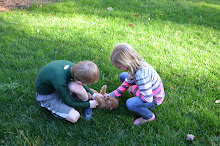There is no pit so deep that God's love is not deeper still. (The Hiding Place).
Have you read The Hiding Place? You have to. You must. You really need to read it. I’m not giving orders here, but get on your Kindle or your Nook or your Ipad and download The Hiding Place by Cornelia ten Boom and Elizabeth and John Sherrill. Now.
Sorry.
I’m in a bit of a mood. Pretty
sure it’s the fact that the weather in Atlanta took a rude turn a few weeks ago
and I now need a shower every time I set foot outside my house, and sometimes,
after I’ve folded warm towels in my supposedly air conditioned laundry room. It could also be that we’re six weeks into
summer and my kids have yet to be in camp at the same time, which means this mama is
dangerously close to losing it if one of them asks me what's for lunch AGAIN. Either way, I apologize for my tone.Have you read The Hiding Place? You have to. You must. You really need to read it. I’m not giving orders here, but get on your Kindle or your Nook or your Ipad and download The Hiding Place by Cornelia ten Boom and Elizabeth and John Sherrill. Now.
Okay, so . . . back to The Hiding Place. I know there are numerous books out there about World War II and the Holocaust and the amazing acts of love that existed among the horrific acts of hate. But please, read this one. I insist. (How was that? Less offensive?)
It’s difficult for me to read about tragedies. It’s hard to hear stories of suffering so immense it could only mean total devastation for someone like me – someone who has walked the easy road since birth and found blessings around every corner of my rather straight and narrow path. And yet, I read them anyway. They make me cry. They make me cringe. Worst of all, they make me doubt my belief because how could a great God allow such immeasurable pain. The answer comes to me even now, instantly and without variation in word or tone.
God condones the things he hates to accomplish the things he loves.
I want to know the stories of humanity, tragic and otherwise. I long to understand how and why we came to be who and what we are. I need to understand that decisions made by simple, normal people have the power to change life for generations. I want to comprehend how the words and actions and sacrifices of a single human being can make an impact on the world forever. Stories like the one told in The Hiding Place stretch my horizons in uncomfortable ways. They force me to remember the mistakes of the past. They show me that sin is real. They remind me that life will never be perfect. They encourage me to realize that people, while capable of the most repulsive acts of hatred, are also capable of the most incredible acts of love. Most importantly, stories like Cornelia ten Boom's allow me to see how God fits into all of it.
When Corrie and her sister Betsy were forced to ride in a train car without food and water and fresh air for over two days, with eighty other women in a compartment that should have held only 40, with no way to relieve themselves except to simply do it, God was there.
When husbands and fathers and brothers and sons were lined up in a row and shot in the head because of their heritage, God was there.
When wives and mothers and sisters and daughters were beaten and battered and forced to do impossible things in hopeless conditions, God was there.
God was there then. God is here now. He’s everywhere. He’s everything. He’s in all of it. I simply have to acknowledge his presence and let him work in my life the way he’s worked in every life since the beginning of time. And I have to expect some pain and heartache and strife and loneliness and unrest, because without those things, I can’t fully experience the love and peace and grace and comfort and rest he so freely offers.
God is good. Even among the severest of conditions and the most abhorrent of attitudes and the most detestable of behaviors, His goodness abounds. Books like The Hiding Place help me to remember that. I hope you enjoy reading it as much as I did. I shed many tears. I took many notes. Much will stay with me. And the next time I find myself in a sea of uncertainty, with waves of doubt drowning out the sound of truth, I might just read it again, and again, and again.
